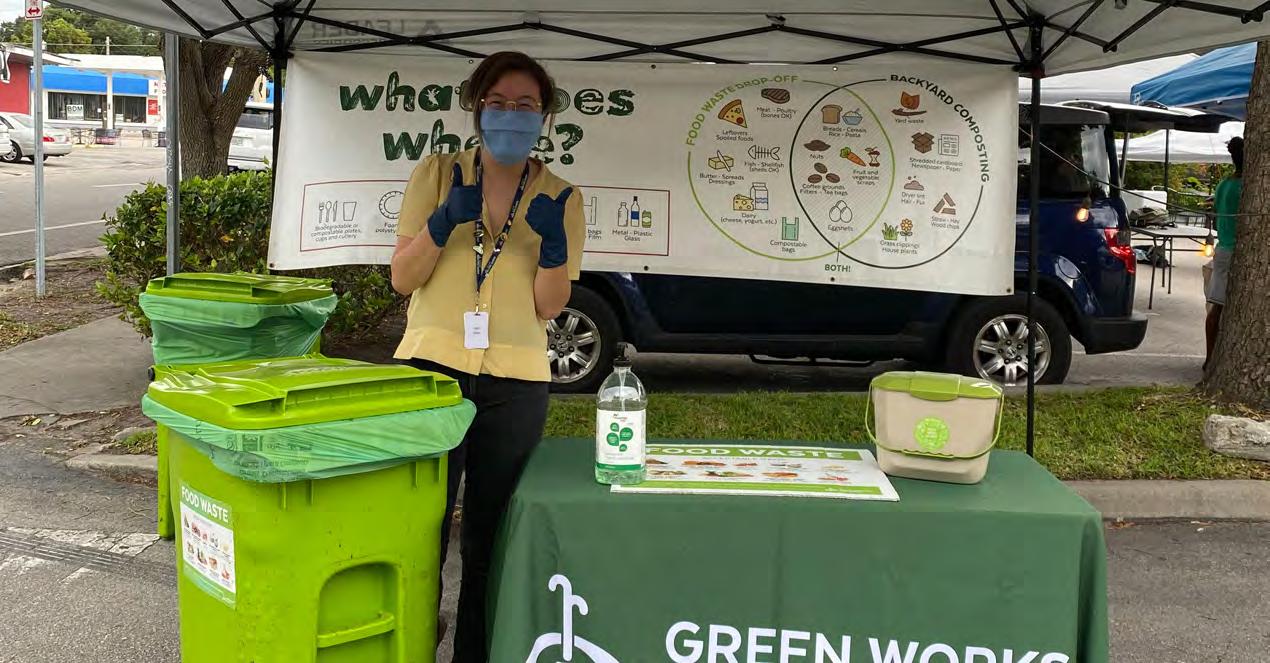
2 minute read
YOUR LOCAL
How to Reduce Your Food Waste
Food waste prevention begins at home.
By Brittany Hoppenworth
According to the U.S. Department of Agriculture, the United States tossed an estimated 133 billion pounds of food in 2010—including waste from retailers, producers and consumers. To put that into perepsctive, the average American family of four throws away $1,800 worth of food each year.
While food waste is a larger, multi-institutional problem (In fact, the USDA and EPA have set a goal of cutting the food waste in half by 2030), you can start the change in your own home. By doing so, you’ll be helping the environment by conserving resources and curbing greenhouse gases generated from food rotting in landfills, says Brittany McPeak, sustainability project coordinator for the city of Orlando.
“Reducing your food waste is one of the easiest and most impactful ways to reduce your footprint,” she says.
Plan Meals
To curb your food waste, start with not creating it in the first place. Heading into the grocery store with a list and a dinner plan means you won’t have as many impulse buys that may spoil before you get around to cooking or consuming them.
“Shop your pantry, freezer, and refrigerator before you go shopping again,” McPeak says. “This uses up food and ensures you don’t buy doubles.”
Fix Improper Food Storage
Did you know keeping milk in the door of your refrigerator helps it to spoil faster? That’s because the door is the warmest part of the inside of your fridge. Move that carton to a middle shelf where it will be kept cooler.
As for your fruits and veggies, take a look at your fridge’s drawers. Highhumidity is great for most veggies, especially for greens that wilt. All your other fruits and veggies can go in the low-humidity drawer.
Freeze Food Before it Spoils
“You can also freeze almost anything,” McPeak says. “Freeze your overripe fruits and veggies for smoothies. Freeze the chicken you didn’t get around to cooking.”
Meat, fish and lunch meat can be frozen for up to 12 months. Fresh vegetables, which you should more often than not blanch beforehand to retain color and vibrancy, can be stored in the freezer for 18 months. Even bread can be frozen for several months and thawed easily when left on the kitchen counter. Best practices for unfreezing meat, poultry, seafood and vegetables: place it in the fridge, in cold water or use the microwave.
Composting
Not all food waste can be avoided. That is where composting comes in. Using natural decomposition, a composter can turn food into nutrient-rich soil that can be used in your garden or on your lawn. It takes a little bit of work to get going, but once you get down the basics, composting can be rewarding.
“Personally, I’ve had my city composter for almost five years now, and it’s amazing how much waste they can divert,” McPeak says.
Those who live in the cities of Orlando or Winter Park can request a free composter from their local governments. Orlando residents also have the option of dropping off their food waste to be recycled at select locations. A list of drop-off locations can be found at Orlando.gov/ foodwaste.











